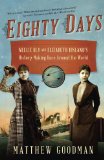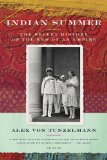Summary | Excerpt | Reviews | Read-Alikes | Genres & Themes | Author Bio

A Story of Burma in the Shadow of the Empire
by Andrew MarshallAn offbeat and thrilling journey through a lost colonial heritage--and a powerful expose of Burma's modern tragedy.
Part travelogue, part history, part reportage, The Trouser People is a vivid account of two adventures, a century apart, into the heart of Burma.
Sir George Scott was a largely-forgotten Victorian adventurer who hacked, bullied, and charmed his way through uncharted jungle to help establish British colonial rule in Burma. Born in Scotland in 1851, Scott was a die-hard imperialist with a fondness for gargantuan pith helmets and a bluffness of expression that bordered on the Pythonesque. He spent years mapping the lawless frontiers of this "geographical nowhere," the British Empire's easternmost land border with China. Scott was also the author of The Burman, a book that is in print to this day, a photographer of rare sensibility, and the man who introduced soccer to Burma.
Modern-day Burma (Myanmar) is a hermit nation misruled by a brutal military dictatorship and numerous drug lords. Its soldiers, like the British colonialists before them, are nicknamed "the trouser people" by the country's sarong-wearing civilians. Inspired by Scott's unpublished diaries, Andrew Marshall retraced the explorer's intrepid footsteps from the moldering colonial splendor of Rangoon to the fabled royal capital of Mandalay, then up into the remote Shan hills, the tribal heartland where Scott had his greatest adventures and closest shaves. Wonderfully observed, mordantly funny, and skillfully recounted, The Trouser People is an offbeat and thrilling journey through Britain's lost colonial heritage-and a powerful expose of Burma's modern tragedy.

If you liked The Trouser People, try these:

by Matthew Goodman
Published 2014
1889: Two women, successful journalists and writers, set off in a desperate rate in opposite directions, each determined to outdo Jules Verne's fictional hero Phileas Fogg and circle the globe in less than eighty days.

by Alex Von Tunzelmann
Published 2008
The stroke of midnight on August 15, 1947, liberated 400 million people from the British Empire. With the loss of India, its greatest colony, Britain ceased to be a superpower, and its king ceased to sign himself Rex Imperator. This is the remarkable story of the events surrounding this transition.